What is colostomy surgery?
Colostomy surgery is done to treat problems that affect your intestines. The surgeon has removed the part of your bowel that isn't working during an operation called a bowel resection. The two healthy ends of your bowel will be sewn back together. Sometimes the bowel tissue needs more time to heal before the reattachment, so a temporary colostomy is needed. Sometimes the entire lower colon or rectum is removed because it is diseased. In those cases, the colostomy will be permanent.
To perform a colostomy, the surgeon makes an opening through the skin on your belly and connects your bowel to that opening. This opening is called a stoma or, sometimes, a colostomy. Your stool passes out of your body through the opening. A disposable bag is attached over the opening to collect stool.
Why is colostomy surgery done?
A colostomy is done when part of your colon or rectum has been removed. It may be temporary while the colon heals or permanent if it is not possible to restore a connection so that stool can leave the body as usual. It may be done for colorectal cancer, diverticulitis, or other colon problems.
Colostomy for colorectal cancer
Anatomy of the colon and rectum
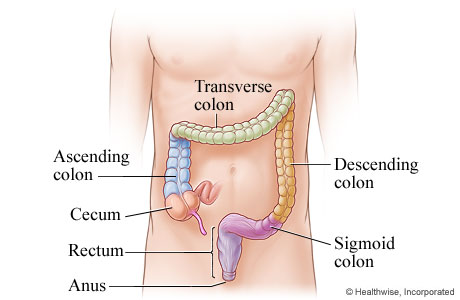
The large intestine (colon) extends from the cecum to the anus and includes the ascending colon, the transverse colon, the descending colon, the sigmoid colon, and the rectum.
Colon cancer site
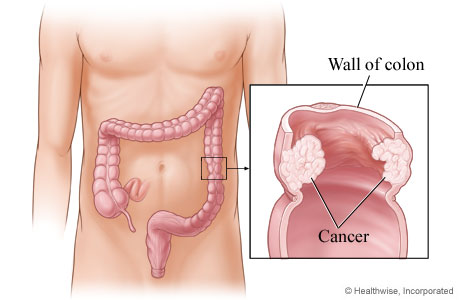
Cancer is shown in a section of the descending colon.
Colon section removed
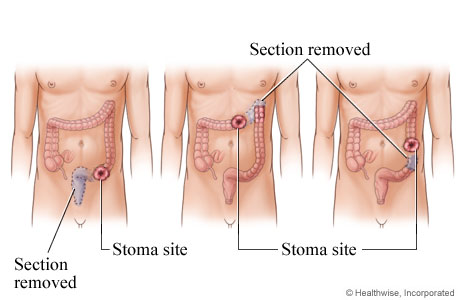
Surgery removes the section of colon that contains cancer.
Remaining colon attached to create a stoma
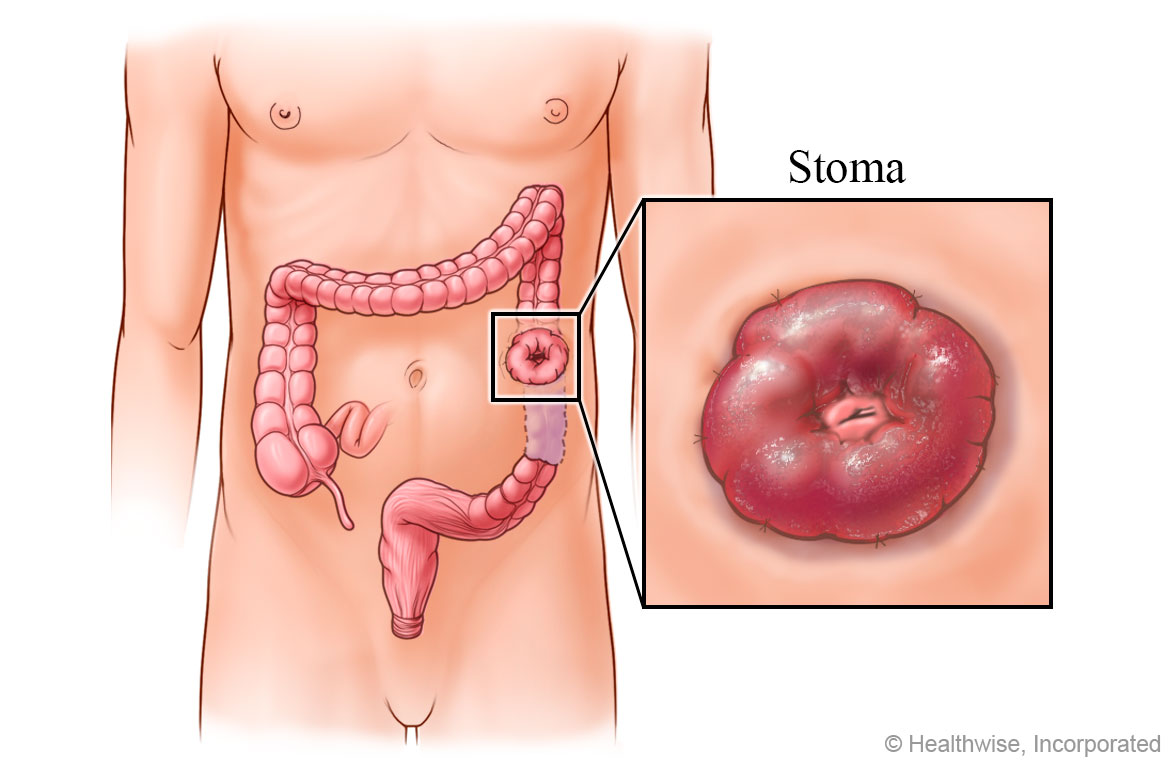
The surgeon connects the end of the remaining section of the colon to an opening made in the skin. This creates a stoma.
Colostomy pouch in place
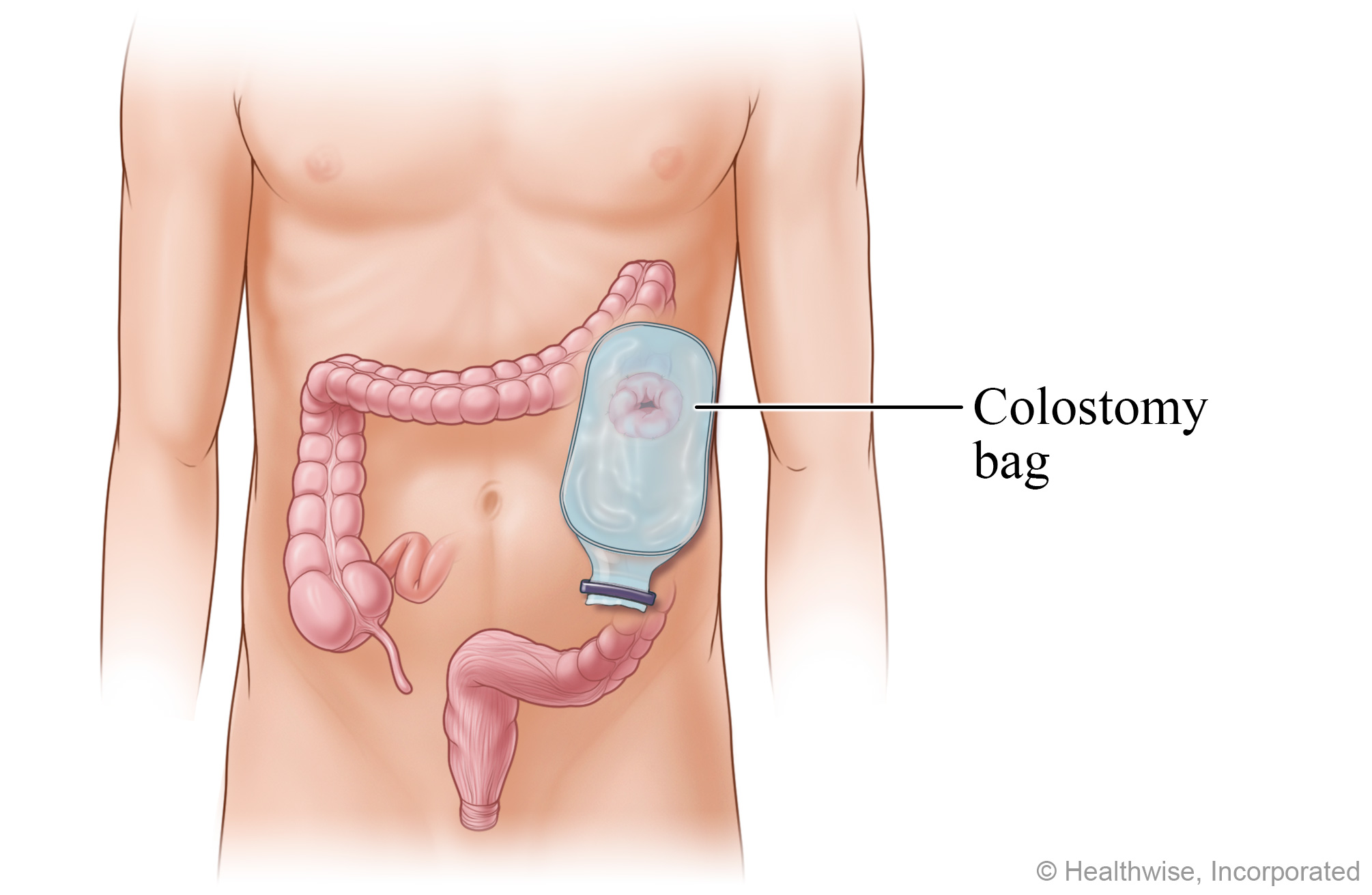
Body waste passes from the colon through the stoma into a colostomy pouch (or bag), which is taped to your body.
After colostomy surgery: When to call
Call 911 anytime you think you may need emergency care. For example, call if:
- You passed out (lost consciousness).
- You are short of breath.
Call your doctor now or seek immediate medical care if:
- You have pain that does not get better after you take your pain medicine.
- You have signs of infection, such as:
- Increased pain, swelling, warmth, or redness.
- Red streaks leading from the stoma.
- Pus draining from the stoma.
- A fever.
- You are sick to your stomach or cannot drink fluids.
- You cannot pass stools or gas.
- Bright red blood has soaked through the bandage over your incision.
- You have loose stitches, or your incision comes open.
- You have signs of a blood clot in your leg (called a deep vein thrombosis), such as:
- Pain in your calf, back of knee, thigh, or groin.
- Redness and swelling in your leg or groin.
- You have a problem with your stoma, such as a change in color or a bloody discharge, or it seems blocked.
Watch closely for changes in your health, and be sure to contact your doctor if you have any problems.
©2011-2025 Healthwise, Incorporated
